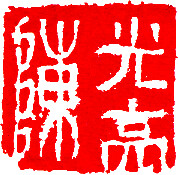|
Thursday, March 23, 2006
Chinese American adoptees
The NY Times recently ran an article about how the first large generation of Chinese girls adopted by (mostly white) American families are now reaching their teenage years. You can read it right here. An interesting part that caught my eye:
The two stories of Molly and Qiu Meng definitely are food for thought. For once, I'm glad to see an article about Americans adopting Chinese girls address the issue that many Asian Americans like myself find troubling with the phenomenon of white American families adopting Asian children: a tendency of those families to exoticize or ignore the racial implications that come with an Asian child being raised by a oblivious families (who by virtue of their whiteness, can ignore racial issues) in a society that is still deeply marked by racism and discrimination against the "other" (read: non-white, non-Christian). I remember my friend Justin (who is a Korean adoptee himself) once wrote a rather extensive essay on the topic. There is some hope, though - an interesting angle explored by the article talks about how many Korean American adoptees are using their experiences to positively influence this next generation of Asian adoptees. It mentions that Nancy Kim Parsons (a filmmaker who's an Korean American adoptee) is currently making a documentary comparing the experiences of Korean adult adoptees with those of the Chinese children being adopted today. .:. more podcasting davephonic has unleashed his Lucky-sponsored (haha) podcast here. Hilarious, and 100% anti-establishment tuneage. Ph333r his awesome casting sKiLLz. |
Comments:
thanks for the plug, mang. im considering exploring the similarities between country music and hip-hop for the next cast. well, assuming there is another one.
Angela- You gotta admit, it's expensive to raise a kid in Japan... adopted or birthed. Did you see the article mentioning the majority of Japanese women in their late 20s and 30s are unmarried? duh-dum!
Post a Comment
dks- heh, nice! Southern krunk + meets blue grass? ;) |
in?scrip?tion (n-skrip-shun)n.
the facts.
|
|












